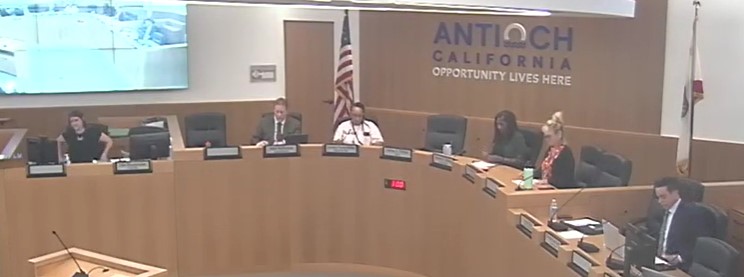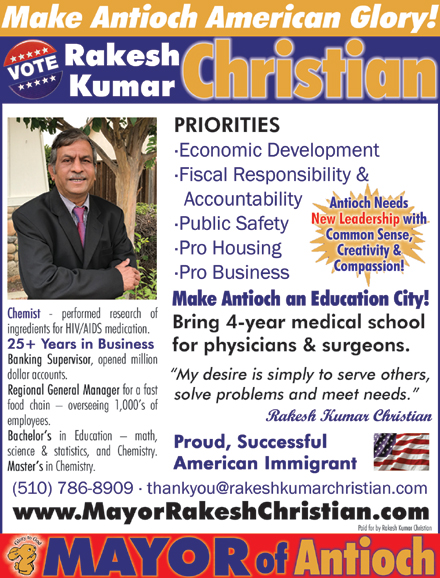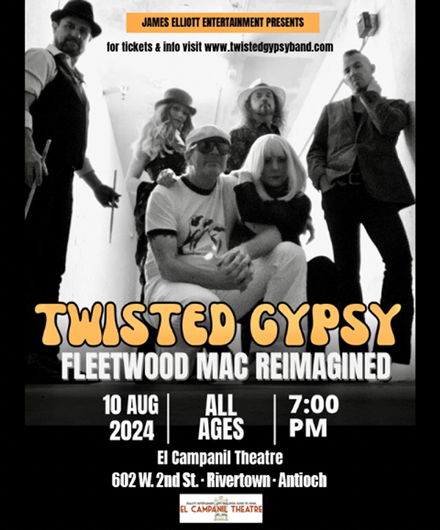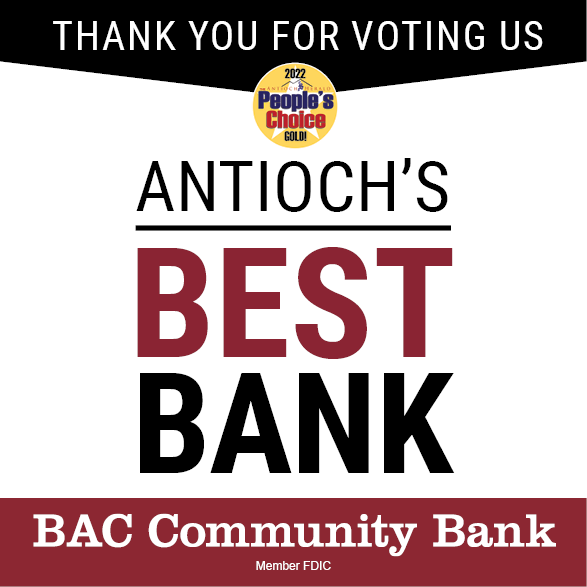Antioch Council to change how meeting agendas are set, changing to rotated mayor may have to wait until 2032

Elections attorney says if it’s possible it would require a citizens’ initiative but no case law; one resident calls switching to rotated mayor is “coup d’état”, part of “right extreme agenda”; Torres-Walker refutes
By Allen D. Payton
During the special Antioch City Council meeting on Tuesday, May 30, 2023, with Mayor Lamar Thorpe absent while on a trip to Mexico, the council moved forward on several changes to how their meeting agendas would be set. They also heard from an elections attorney that changing to an annually rotated mayor among council members instead of directly elected may not be possible mid-decade. If it’s possible, the council couldn’t place the matter on the ballot but would require a citizens’ initiative.
During public comments on the first item regarding the agenda setting process several residents spoke on both sides of the matter. Mayor Pro Tem Tamisha Torres-Walker who ran the meeting reduced the public speaking time from three to two minutes.
The first resident to speak, Erica Ralston said she wants police reform and rent control on the agenda.
“I do not want this to sidestep the biggest issue in Antioch at this time,” said resident Leslie May. “This is a game changer…a historic move with the police changes. I don’t want anything that happens tonight from the focus on the Antioch Police Department…to rid our police department of undesirables.”
Dr. Geoffrey Klingler said, “I salute you. This is an important topic. You have people in your districts whose concerns you’re supposed to represent. The process needs to be fair and equitable for all in this city. Hopefully, this is just the beginning for council members to take the personal biases out of running this city. Good luck.”
Resident Julia Aymachoque spoke in favor of a four-year term for the mayor saying, “We need unified leadership. This right extreme agenda calling for the mayor to serve only a one-year term must be stopped. We don’t welcome this covert coup d’état. If possible, we should only have one election district. We need…five representatives working together.”
Resident Andrew Becker said, “This is a long time coming to our community. What the council majority has asked for is a fair process for getting things on the agenda. It’s been difficult as a community member to watch those items get to the agenda from council members, I’ve requested them of. It’s not fair. It’s time we have a new process. I support the power of two…with one council member to get another council member to support bringing something forward to the council agenda.”
Frank Sterling spoke next saying, “I do wish we could have started off with your discussion so we could hear what you all are thinking. If you can’t do it, then it’s really tough to see our items get on the agenda. However, it turns out, I’m kind of glad it’s happening. So, good luck.”
Devin Williams said, “This puts us all in an awkward position. The fact that we have a special meeting on bringing items on the agenda before the mayor…we have a system that is working. We have a process, and we have to wait whether it’s six months, nine months or a year. I don’t think you’re being misrepresented if you have to wait. If you want something to come up and the only person to bring it is the mayor, then organize. So be it. Come to these meetings. Go knock on doors. Come talk to your people. Mayor Thorpe is not going to work in bad faith against it.”
Resident Francisco Torres then said, “We can’t forget the accountability of the police. It’s going to be quite a while. Probably two years. Thank you for bringing this to the community. The way I view it is Government 101. Sometimes there comes a time when you need to look at things. In the end it’s what’s best for the community. I think it’s important the community knows what’s going on. People are starting to get involved more and more and that’s a good thing.”
Ralph Hernandez said, “Tonight’s meeting is another perfect example that you’re not listening to the public. You reduced it down to two minutes for tonight. Do you not have time for the public? When I was on the council public comments were five minutes. We worked until after midnight. Sometimes you reduce the public that shows up here…you cut it down to one minute. By the time they get their words together…times up. What more important things are there than listening to the public to come to you?”
“Yes, you shouldn’t have items that take six months to a year to come before you,” he added.
Resident Nichole Gardner said, “I just have to say on this agenda item, one, I think, I wish it didn’t even have to come to this. The voters that voted for the mayor knowing the authority he had. I don’t think it’s fair for you to take away his authority. Ya’ll staff is low. Staff is quitting left and right. That’s one of the reason Rosanna left. It’s just too much pressure on the staff. I think you all need to take that into consideration. Outside of the council he only has one vote. It undermines the voters. This is really, to me, this meeting is nonsense. I’m really surprised by the folks that wanted this to happen.”
Another resident, Tanita Travis said, “This just shows…more of a division instead of working on the things that should really come to the forefront like what is happening with the police. Number one is not that important to do in the middle of a term. It shows Antioch government is not a community of a whole as a council. It shouldn’t be. It’s not a good look. If you can’t get an item on an agenda…if there is a whole group of you. It doesn’t seem fathomable. There are other things that we could be meeting about. There are so many other issues we have. I just don’t understand it.”
Lucas Stewart-Chilcote then said, “I want to echo pretty much what the previous person said. It was puzzling to see when the agenda was posted. It is very odd to see the items on a special meeting. For agendas is it a lack of staffing? Can we have the agendas publicized a minimum of two weeks before? Can we bring back the virtual participation for public comments?”
Ronald Muhammad spoke next saying, “I moved to this city because I saw the opportunity, the potential. I did not know the city is so…divisive. I would have never bought into this corporation called Antioch because I’m a shareholder. You guys are representatives of the people. But far too often you seem to be inputting your own things. You represent a base, a constituency base. People are waking up and they’re seeing the divisiveness. It shouldn’t be three-two votes every time. Can’t you agree on anything?”
Former Mayor Don Freitas said, “I’ve had the honor of being both council member and mayor. This item, and it has disturbed me for the past two years to see items not getting on the agenda. When I was mayor…I never, ever denied a council member from placing an item on the agenda. I would suggest anybody on the council, when you ask for something on the agenda, you have an action calendar…and you publish it as part of your agenda so people can see how long it’s taking. I have been greatly disturbed when you, all of you, have requested an item on the agenda and they don’t come for a month, several months.”
Resident Dorothy Ellis said, “I was disturbed, too by a special, called meeting. Is it distraction politics? Because what we should be focusing on is the police and healing. That is something that should be rectified among you. If we lose the police department because we can’t rectify this my property value takes a hit. I want to see us heal. I want to see us come together and not be divided by color. I want to see the community empowered by the people. If ya’ll can’t do that don’t run.”
Council Discussion on Setting Future Meeting Agendas
During council discussion of the item District 2 Councilman Mike Barbanica said, “I want to give you a bit of history of how this came about, tonight. It surprises some people when this comes about. Mayor Pro Tem Torres-Walker and I have kept in regular contact. We don’t always agree. We talk after council meetings sometimes, on the weekends. She asked me to call her. We talked for several hours about our frustrations over the past two years.”
“This has nothing to do with one person. This has to do with the governance of this community,” he continued. “Can all of us get items on the agenda? This is for future councils to come so council members don’t feel they can’t get things on the agenda. We both agreed, good luck getting this on a future agenda to talk about.”
“Once two of us speak, we’re done, we can’t talk with anyone else on the council about a specific item,” Barbanica explained. “So, we agreed that yes, we will call for a special meeting and if there’s support amongst the council we will proceed with a special meeting We brainstormed about problems we’ve had over the past two years.”
“You’re right. We have a staffing problem,” he continued. “But what we’re seeing is extensive, extensive agendas for the meetings. We talked about that very thing, what is this doing to staff…and how this is bogging down the system. Good luck getting your item on the agenda. So, we talked about the amount of items and the time we spent here, with the public. We bounced ideas back and forth…with the number of agenda items, the number of hours…in a meeting. Council can vote during that meeting to extend those hours. We also spoke about the possibility of 90 days…instead of six months to come back. In addition to that, we talked about limiting the number of agenda items from council members.”
“We’re not looking to take the entire thing away from the mayor’s office. We’re looking for a way to make sure that everyone’s item gets on an agenda,” Barbanica shared. “If we run out of time, instead of saying it will be on some future agenda, that item will be number one on the next agenda. These are some of the things we talked about. Reserving the spaces for council members’ items to come back.”
“Public hearings and presentations take on a large portion of the meeting. So, we’re talking about discussing limiting the number of public hearings on an agenda. Hopefully, we can come to a consensus tonight. Nobody’s looking to take total authority away from the mayor’s office…on the agenda and in a timely fashion,” the District 2 Councilman concluded.
District 3 Councilwoman Lori Ogorchock spoke next saying, “I didn’t know these were the list of items. When I got on council in 2014, Councilwoman Wilson was already on the council and we couldn’t get items on the agenda. So, we set up a six-month timeframe. These are things that come up…these are people calling us, emailing us. I’ve recently found out we really don’t have a policy for the mayor setting an agenda. It used to be the mayor and the city manager would set the agenda. But that’s not happening, either.”
“It’s been very frustrating as a District 3 representative,” she continued. “If I can’t get anything on the agenda for the constituents in that area, it’s not fair. It’s not to take something away from anybody. It’s to be fair across the board.”
District 4 Councilwoman Monica Wilson said, “I’m sorry for all the confusion of this non-emergency emergency meeting. I definitely agree this process needs to be transparent. I, too, see that the staff is overworked. Yes, I do agree that there needs to be a process. I do wish this was a meeting we were all here for. I’m not a fan of an agenda item that doesn’t have a report attached to it. Whoever calls it needs to explain it. I think there should be a little more time. Again, I apologize for this very vague…meeting.”
Torres-Walker then offered her reasons for the special meeting and agenda item saying, “Myself and Councilmember Barbanica have been talking about how the agenda is set. I asked (former city manager) Ron Bernal…why do we have a list of like 20, 30 things that haven’t been brought back. And then it could take up to six months before they’re even brought back and when they’re brought back it’s simply as a discussion and then we decide to move foward. That is a clear absence of voice and diversity when the person you elected to council can literally in their term not get anything done because it could take up to six months or more for items to come back to the agenda. I know, there were definitely things when I came on this council were more than a year old and the council members who asked for them were no longer on council by the they came back.”
“When we’re talking about a right-wing or left wing agenda I’m not a bird. So, I don’t know what a left wing or right wing is. Since the diversity in this community…the system isn’t working. This isn’t about…who eventually ends up in the mayor’s position. This is simply about good governance. We operate in bad faith in democracy when people don’t see themselves in public policy. I also want to say this council majority absolutely has the authority to do this. But for two-and-a-half years we have tried to say, ‘OK, let’s wait’. But it hasn’t been working. This is within our authority. I didn’t run for office to sell all my values to get something on the agenda. When you say ‘oh, the council is divided’… that didn’t just start. Day one there has been division. Not necessarily in personal relationships because some residents are surprised Councilman Barbanica have figured out to have an open dialogue and relationship. This is about how things can come back in a timely manner.”
“Fortunately, for me, I’m not looking to climb a political ladder so, I’m not afraid,” she continued. “I do think it’s reasonable to have a time to have things come back to the agenda. I do think it’s absolutely reasonable to look at the agenda and make sure that it’s not so packed.”
“When you have 10, 20 things on an agenda and we have to get through all of them in one night, you are going to get one minute to speak,” Torres-Walker stated. “This is probably the most diverse discussion this council has ever had. Why hasn’t this discussion never happened a long time ago. I’ve been able to move things through the agenda. I had to step back, my peers up here on the council should also be able to move some things on the agenda whether they have the votes or not.”
She then asked City Attorney Thomas L. Smith his thoughts “on how we can move forward in making some changes.”
“There is a municipal code that states these processes can be codified in a resolution,” he responded. “You seem to have several items…on those things you can reach consensus…that resolution could come back at a subsequent meeting.”
Ogorchock then said, “There have been several times and several meetings when things come up for discussion and there hasn’t been a staff report. We do this on a regular basis.”
“I have also seen some items come to this agenda with no background…for discussion,” Torres-Walker said. “Everything is urgent except better government. We are not dismissing that we have 18 incidents of firearms in our community. This isn’t overshadowing policing…housing and tenants’ rights. None of that. This is happening so we can have items come back on the agenda.”
Members of the audience yelled out from their seats attempting to disrupt the meeting.
“Calm down, calm down. This is just a discussion. We’re about to have a round robin to see what’s coming back. This isn’t going away,” Torres-Walker said trying to control the meeting but didn’t use the gavel. “This city has been understaffed and staff has been underpaid since 2017. Look if you want to fight for the mayor that’s another discussion.”
“We have not violated the Brown Act,” the mayor pro tem said in response to an accusation by a member of the public.
Barbanica then began reading through the seven points he and Torres-Walker developed.
He and Ogorchock agreed on 11 p.m. to be the meeting limit.
“That’s already in place,” Wilson said. “I didn’t say yes or no.”
People continued to yell out from the audience.
“I agree, as long as we start adhering to it,” Barbanica said.
“Anything not handled at a council meeting, those items will be on the next agenda and those items will be the first ones on the next agenda,” he added.
“I agree with that,” Ogorchock said.
Gardner continued to yell out from the audience.
“Placing a maximum of seven items on the agenda, three reserved for council members,” Barbanica said.
“I don’t know about this one, yet,” Ogorchock said. “I don’t know if I want to do a number of items. I just want to go back to the timeframe.”
“So, I say we stick to the timeframe,” Torres-Walker said.
“I’m fine with that,” Barbanica stated.
“Three items reserved for council members,” he than offered.
“The mayor and the city manager already set the agenda,” Torres-Walker said. “There be at least three of those that come back.”
Those in the audience continued to yell out.
“Wait. Just a second. So, I’m wondering. My thing is like, we done already heard the voices of people who agree and don’t agree,” Torres-Walker said, again trying to control those yelling out. “You can keep disrupting the meeting but it’s not going to disrupt the vote. This is just direction. I’m not going to say what I’m thinking because it won’t look good for your mayor.”
People continued to yell out.
Ogorchock then said, “If there were some really important things that need to come forward, like the budget…I’d like to have one or two things on there.”
“I’m OK with two,” Barbanica said.
Wilson said, “I prefer three. But, yeah. Whatever. I can deal with three.”
“The six-month list will be changed from a six-month to a 90-day list,” Barbanica then offered.
Wilson said she was concerned about emergency items that might come up.
“The six-month process is just not working,” Barbanica said.
“We would spend one council meeting just talking about all the items that are a year out,” Torres-Walker stated.
“It’s longer than that,” Ogorchock added who also said she was fine with the 90 days.
“I’m fine with the ninety days,” Wilson said.
Acting City Manager Forrest Ebbs said, “Speaking for staff, it always seemed strange to bring things back without a staff report…to give you some context for a discussion.”
“I know when Ron Bernal was here he said
“There are a lot of practices that have been handed down. But I think this is the right time to change things,” Ebbs said.
“Definitely within the next two meetings,” Attorney Smith said about bringing back the resolution on changing how agendas are set. “I’m very confident that it could be in the next two and if it’s possible, the next meeting. No later than June 27th and if possible, the next meeting June 13th.”
The other council members agreed to the timeline for the resolution to be brought back to the council for a vote.
Item 2 – Consider the process to transition to five council districts and switch from a directly-elected
“This came up because I was at an electoral event,” Torres-Walker said. “The next time I saw them they were the mayor. I asked them how does that work? We should discuss that in Antioch if other cities are doing it. Is it fair? Does it add diversity to the role? If it gets to rotate you get more diversity in the government. None of the other folks from Pinole and other councils seem to have a problem with it.”
“This was something that was voted on 10 years ago in Antioch and failed, miserably,” she added. “This isn’t the same community it was 10 years ago. I thought it would make sense to bring it back and discuss it, now.”
“We both know this would go to the voters. We would not make a decision up here.
It would be extremely unlikely this would affect the current mayor. This is about the future. This is not to remove a current mayor. That was never the discussion. Would it make to go to a fifth district as other councils.
Attorney Smith said he had an elections attorney available to answer questions during the meeting as a panelist on Zoom.
“It was voted down in 1994,” Ogorchock stated.
Also in 2012, someone added.
During Public Comments on the item resident Ramesh Shuman said, “This has been tried in so many cities and it has been very successful. I think this would be a good time to try it…to give each person a chance to bring new ideas that we have not heard in the past. But this would not be for this term.”
“This is a dictatorship in content. I do not want any of you mayor, ever,” said Julia Aymachoque. “But you are forcing yourself to that position, no matter what. Reducing the term of the mayor to one year…is a terrorist threat to all of us. An attack on Antioch Mayor Lamar Thorpe is an attack on all Antiochians, democracy and U.S. Constitution. The right extreme agenda, a systemically racist move and we want you to stop this monstrosity. Let the mayor be the mayor for four years. Defund the police, pay for the lawsuits, create instead social safety net.” (Nichole Gardner could be seen standing, clapping and saying, “yes” in response).
Andrew Beckers spoke passionately saying, “Council worked very hard to say this is not an attack on Mayor Thorpe. I think this item would come forward on next year’s ballot which we would all vote as a community. The good majority of cities in this state follow this practice. This city does not have a strong mayor. But our mayor has acted strongly for a long time. This mayor is a city council member who chairs a board. This same mayor that everybody is supporting is not here. Everybody deserves to have a voice, all of our elected officials and I applaud this.”
Frank Sterling said, “I understand we get to vote on it. I look forward to hearing…about how it works.”
Former councilman Ralph Hernandez said, “This is a item that I think really needs to be thought out. I’m not opposed to it. That depends. All of you represent a part of the community under this district voting, I call it B.S. I think we should eliminate district voting and go back to electing all council people. I don’t think we can really address this particular item, yet…until hearing from the public. When you have elected officials we want them to represent all of us.”
Resident Lucas Stewart-Chilcote said, “The previous agenda item I felt some equity. This is different. What are the advantages to this? Should we do the United States of America president as a one-year rotation? What other advantages is there to be the mayor to keep it fair? Are there other roles…what would you all get out of it?”
Francisco Torres said, “I also noticed most cities are going for five rotated mayors. I think that’s a good idea. That way each one of you gets the chance to be the mayor and run the agenda and run the meetings. Every district has a voice, and those voices need to be heard. We’ve only been doing it for 200 years. I do believe in district council people because you have to answer to 25,000 constituents. They have someone to go to. Good luck and see where it lands.”
Ronald Muhammad spoke next saying, “This is not about a person we’re talking about processes. That’s why I keep talking about the Brown Act. The people are being taken out of the process. ‘The people shall not give up their sovereignty’,” he quoted. “What constituency base brought this to you or did you bring this up? Whose stuff are you bringing forward or is it your stuff? That’s why I keep yelling Brown Act, Brown Act. It seems like other things are going on. If you want to beat Thorpe run against him. Beat him at the polls. Brown Act violation.”
Dorothy Ellis then said, “I totally disagree having four to five districts…it should not be a shared responsibility. If he’s not doing his job then it should be us voting him out. You haven’t provided us anything. You want us to take you at your word. We don’t want you to circumvent the process. This is called a special meeting and it’s only a discussion. You done took my time and you’re not voting on anything.”
Susannah Williams said, “I’m in support of districts. Mayor Pro Tem Torres-Walker’s district has a voice for the first time, ever. We voted to elect a mayor. I don’t think a rotated mayor works as good with districts. I see this as a little premature and distracting. If you have to go through that redistricting process it could be nowhere as fair as the districts are, today.”
Kimberly Kidd-Bailey spoke next saying said, “I’ve been an Antioch resident for 23 years and I just started coming to the council meetings. What’s going to happen with all the police stuff…with all the other items I heard? What all are you doing for the public? About the mayor thing…you guys are bickering amongst each other calling each other names. Why would I want you to be mayor for one year?
“I heard someone all you racist or white privileged last time,” she said looking at Ogorchock. “I don’t want you representing me if you’re like that.”
Resident Devin Williams said, “I believe in the democratic process. I believe we deserve to elect somebody and let them lead. Not everybody who is going to rotate into this chair will represent everyone. We need to have consensus when we go to the voting booths when we’re voting for the mayor. It was voted against I 2012. There are other issues we need to be worried about than this foolishness, tonight. I respect those wanting to do this but we shouldn’t have the discussion without the mayor here.”
Don Freitas spoke next saying, “The issue before us is not about Lamar Thorpe. The issue is do you want five districts or an elected mayor. The reason cities go to an elected mayor is when they get large and the issues are complex. Frankly, I would just strongly suggest you to not have a rotating mayor. You want someone who represents the entire community and is answerable to all the people. I’ve seen the squabbles with rotating mayors. There are just some people on council who should not be mayor. It’s a whole new level. It’s more complex. I really hope you don’t put this on the agenda next year.”
Allison Norris was the last from the public to speak saying, “I was the person that messaged you, Tamisha, and you got back to me. I’m in District 3, but first and foremost I’m an Antioch citizen. One of the reasons we’re divided, we’re divided on race. Just because I’m white doesn’t mean I don’t care about Tamisha’s districts. And comments like what was said about Lori, last week is not right.”
Council Discussion on Rotating Mayor
Elections attorney Mel Richardson co-chair of Walnut Creek-based law firm Best Best and Krieger’s election law practices group, joined the meeting via Zoom.
In response to questions from Barbanica he said, “these issues are governed by California Elections statute in the FAIR MAPS Act,” he said. “Of four plus one or five districts. There’s actually a threshold issue that needs to be addressed…whether or not it can even go forward.”
According to the bill, AB 849 which became law in 2019, FAIR MAPS stands for Fair And Inclusive Redistricting for Municipalities And Political Subdivisions.
“The FAIR MAPS Act was significantly revised before the last redistricting process,” Richardson continued. “After redistricting…a council shall not adopt new council district elections until after the next decennial census except in three instances: settlement of a lawsuit, or if the city boundaries change. This applies here because when you change from four districts to five districts you rejigger through redistricting. This statute is not perfectly clear because it says the council is prohibited from creating new council districts. It doesn’t address the initiative process. An initiative cannot accomplish what a council cannot accomplish. So, it’s possible that it couldn’t be accomplished by initiative. But that’s not been tested.”
When the council transitioned to districts in 2018, the FAIR MAPS Act became applicable,” he added.
“This would have to be brought to a ballot. This is not our decision. Then the people would have to decide. That is the pathway, correct?” Barbanica asked.
“Yes,” the elections attorney replied. “But we’d have to do a deeper dive. There is no case law. An initiative would have to be used. But it’s even possible that may not be allowed.”
“Government Code 34886 is exactly where you want to go for these different kinds of districts,” he said in response to a question from Torres-Walker. “But that section punts over to the MAPS Act and that is governed by the timing in the Elections Code.”
“We always understood this is not a council action,” Barbanica said. “We’ve received lots of feedback from members of the public over the last week.”
“Having discussions like these to understand what’s possible…I don’t change,” Torres-Walker said. “Even if we have a discussion about this, I’m not afraid to bring things up. I’m also not intimidated by this. Because the public has a right to know. Thank you, city attorney…because now we know the parameters.”
“I think the fear is very concerning to me,” she continued. “When you say we aren’t dealing with Black issues up here…I don’t remember police reform…tenant protections being brought up before.”
“Sometimes open communication is what actually opens relationships not closed minds,” Torres-Walker added.
She then moved to adjourn the meeting and the motion passed 4-0-1 at 9:01 p.m.
the attachments to this post:

Torres-Walker leads Antioch Council mtg 053023


























